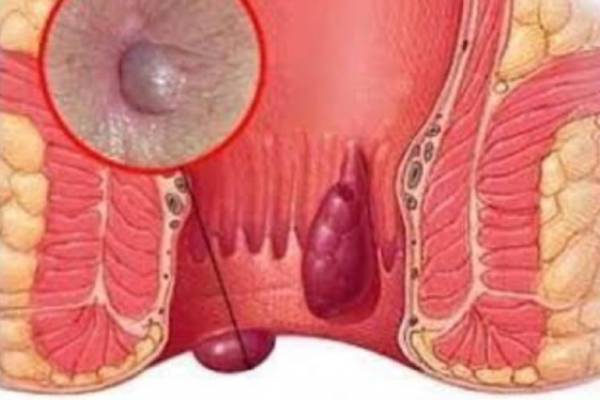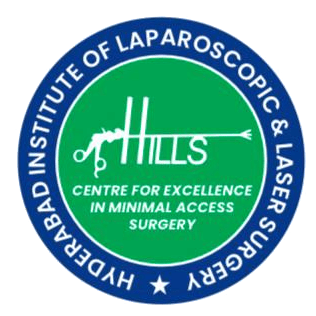Are you in search of the best fissure treatment in Hyderabad? ,look no further then Dr. N. S. Babu one best Surgical Gastroenterologist in Hyderabad and also best fissure specialist in Hyderabad where he has done treatment of piles, fistula and fissure through laser treatment ,with the help of his team he has perform the minimally invasive surgery to ensure the best outcomes for his patients. With 15+ expertise in this field he has treated more than 5000+ patients suffering from this disease.
Dr. N. S. Babu has won many awards and also he has been part of the world’s first randomized clinical trial on laparoscopic Vs open pancreatoduodenectomy.Currently Dr. N. S. Babu working as a Consultant Surgical Gastroenterologist and Advanced Laparoscopic Surgeon at EVOKE Clinics, Secunderabad, and Apollo Hospital, Hyderabad .

What is Fissure?
An anal fissure is a small tear or cut in the filling of the anus. It can cause sharp pain and bleeding during and after bowel motions. Anal fissures are generally caused by trauma to the anal conduit, similar as passing hard or large droppings, habitual diarrhea, or seditious bowel conditions. They’re common and can be treated with specifics, dietary changes, and in some cases, surgery.
What are the signs and symptoms of fissure?
The signs and symptoms of an anal fissure include:
- Pain during or after bowel movements, often described as sharp or burning
- Bright red blood on the stool or on toilet paper after wiping
- Itching or irritation around the anus
- A visible tear or crack in the skin around the anus
- A small lump or skin tag near the tear, called a sentinel pile
According to best colorectal surgeon in Hyderabad, Dr. N. S. Babu these symptoms may vary in severity and duration depending on individual factors and the underlying cause of the anal fissure.
What are the causes of fissures?
Dr. N. S. Babu specific the cause of Fissure that includes :
- Passing hard or large stools
- Chronic diarrhea
- Anal trauma
- Inflammatory bowel disease
- Childbirth
- Anal sphincter dysfunction
- Decreased blood flow to the anal area
- Anorectal disorders
How is the fissure diagnosed?
Diagnosing an anal fissure generally involves a combination of medical history review, physical examination, and occasionally another tests where Dr. N. S. Babu a surgical gastroenterologist in Hyderabad explains how it’s generally done:
- Medical history Your doctor will interrogate about your symptoms, involving any pain or bleeding during bowel motions, and query about your bowel habits and any beginning medical conditions.
- Physical examination Your doctor will achieve a visual examination of the anal area to look for signals of an anal fissure, analogous as a fragile slit or crack in the skin. They may also gently press on the area to charge tenderness and check for any coexisting conditions like hemorrhoids.
- Digital rectal examination( DRE) In some cases, your doctor may carry out a digital rectal examination by fitting a gloved, oiled finger into the rectum to feel for any abnormalities, analogous as a tight anal sphincter or masses.
- Anoscopy or proctoscopy If the diagnosis is uncertain or if other anorectal conditions are assumed, your doctor may recommend a procedure called anoscopy or proctoscopy. These involve fitting a slim, adjustable pipe with a light and camera into the rectum to directly visualize the anal tube and lesser rectum.
- Stool examination If there are concerns about basis conditions alike as inflammatory bowel complaint or infection, your doctor may order excreta tests to check for signals of inflammation, infection, or blood.
These diagnostic steps help confirm the presence of an anal fissure and rule out other potential causes of anal pain and bleeding.
Treatments options for Fissure:
Dr. N. S. Babu provides best fissure treatment in Hyderabad , where he typically involves both medical and self-care measures for patients effective recovery.
- Topical Medications Over-the-counter or custom topical ointments or creams containing constituents similar as hydrocortisone, lidocaine, or nitroglycerin can help relieve pain and promote recovery.
- Stool Softeners and Fiber Supplements Keeping droppings soft and big can reduce the threat of further irritation and promote recovery. Fiber supplements like psyllium husk or methylcellulose and dropping softeners like docusate sodium can be helpful.
- Medical Procedures:
- Botulinum Toxin Injection In cases where the sphincter muscle is too tight, injecting botulinum toxin can help relax it.
- Lateral Internal Sphincterotomy This surgical procedure involves cutting a small portion of the anal sphincter muscle to reduce spasms and enhance blood inflow to the area, promoting recovery. It’s generally reserved for habitual fissures that don’t respond to other treatments.
- Surgery In cases where conservative treatments fail, surgery may be necessary. This can involve a procedure to remove a fragile portion of the anal sphincter muscle( sphincterotomy) to reduce spasm and promote reclamation.
Why Choose Dr. N. S. Babu for Fissure treatment in Hyderabad?
- Experienced & Expert Surgeon: Dr. N. S. Babu has over 15+ years of experience in gastroenterology and laparoscopic surgery, and he has performed thousands of successful surgeries. He is an expert in diagnosing and treating gallstones and has a high success rate in treating his patients.
- Advanced technology: Dr. N. S. Babu uses the latest and most advanced laparoscopic surgical techniques and equipment to perform gallstone removal surgeries. This helps to minimize pain, scarring, and recovery time for patients.
- Compassionate care: Dr. N. S. Babu and his team provide compassionate and personalized care to every patient, taking the time to listen to their concerns and provide clear explanations of the treatment options and procedures.
- Patient-focused approach: Dr. N. S. Babu believes in a patient-focused approach to treatment, meaning that he takes into account the individual needs and preferences of each patient in developing a treatment plan.
- Advanced facility Hospital: Dr. N. S. Babu currently working with the best hospitals in Hyderabad i.e. EVOKE Clinics, Secunderabad, and Apollo Hospitals Hospital, Hyderabad. which provide the best facility to the patients.
Consult With the Best Colorectal Surgeon in Hyderabad:
Are you in search of the best fissure treatment in Hyderabad? Look no further – Dr. N. Subrahmaneswara Babu is one of the best fissure specialist in Hyderabad. For any information and appointment call us on 094908 08080 or simply fill out the form Book your appointment
Frequently Asked Questions (FAQ's):
Which is the best treatment for fissure?
The best surgery for a fissure is usually a lateral internal sphincterotomy (LIS). It involves cutting a small portion of the internal anal sphincter muscle to reduce pressure and promote healing of the fissure. This procedure is highly effective and minimally invasive, with a low risk of complications.
Is fissure curable without surgery?
